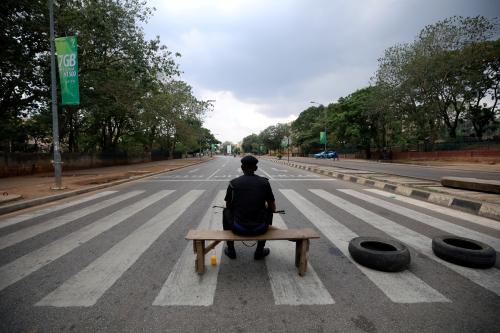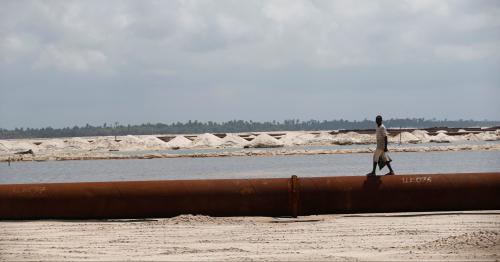Referendum for new Sidama region in Ethiopia announced amid protests
Tensions over the Sidama ethnic group’s attempt to form a semiautonomous state within Ethiopia boiled over into turmoil and violence this week with three deaths reported in Hawassa after officials announced a delay in the state’s creation. According to Reuters, a political party representing some of the Sidama said it would postpone the immediate creation of the semiautonomous state and instead wait for a referendum in five months. Notably, the country’s constitution requires that the government hold a referendum for “any ethnic group that wants to form a new entity,” but critics state that that timeline has already passed.
The Sidama are the largest ethnic group in the multiethnic Southern Nations, Nationalities, and Peoples’ Region, of which Hawassa is the capital. Notably, the decisions around this issue may have a domino effect: The Sidama, who make up 5 percent of Ethiopia’s population, are one of at least nine ethnic groups within the country pushing for their own regions.
Republic of Congo and IMF agree on three-year program
Last week, the International Monetary Fund’s (IMF) executive board approved a three-year, $448.6 million Extended Credit Facility program for the Republic of Congo. The agreement is the result of more than two years of negotiations that began when the country’s debt burden hit 118 percent of GDP in 2017 following the oil price shock in 2014. The program is expected to help improve macroeconomic stability and debt sustainability in the country. The IMF agreement was facilitated by the Republic of Congo renegotiating some of its debts with China earlier this year. As part of the agreement, repayment on two-thirds of the country’s $2.56 billion in debt to China will be extended by 15 years.
The agreement with the IMF will also allow the Republic of Congo to access funds from the African Development Bank (AfDB). According to officials at the AfDB, the country will be able to access $2 billion between now and 2021. Ratings agency Moody’s also noted that the IMF deal, along with the restructuring of Chinese debt, is a positive step for the country’s credit rating. Republic of Congo’s bonds are currently rated at Caa2, one of the lowest possible ratings.
Ebola spreads but HIV-related deaths fall
On Wednesday, July 17, the World Health Organization declared the most recent outbreak of Ebola to be a global emergency. In recent days, the disease reached Goma, a city of 2 million people in the Democratic Republic of Congo (DRC), and has reportedly spread to Uganda and Rwanda as well. As of Monday, this most recent outbreak of Ebola—the second largest in history—has infected 2,512 people and claimed 1,676 lives. In response, the DRC’s health ministry announced that police and soldiers would be enforcing hand-washing and fever checks.
In other health news this week, UNAIDS announced that deaths attributed to HIV/AIDS have declined by one-third worldwide since 2010, and there has been a 16 percent decline in new HIV infections over the same period. Despite these gains, performance across regions varies: Europe and Central Asia have seen an increase of 29 percent since 2010, but South Africa alone has reduced new infections and AIDS-related deaths by 40 percent. According to “Global AIDS update 2019 — Communities at the centre,” while the number of new infections and AIDS-related deaths have fallen globally, the total number of people living with HIV has risen.







Commentary
Africa in the news: Ethiopia’s Sidama, Republic of Congo’s debt, and Ebola and HIV updates
July 20, 2019